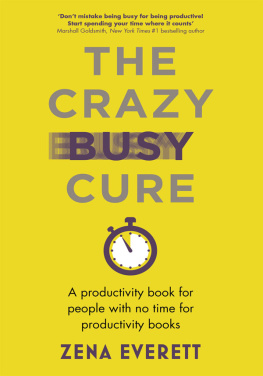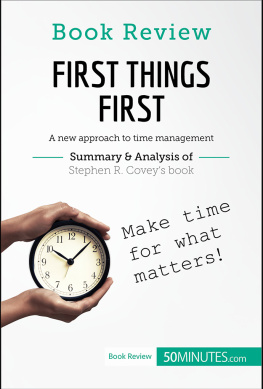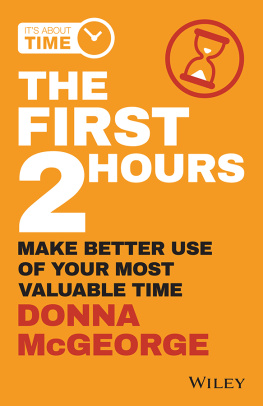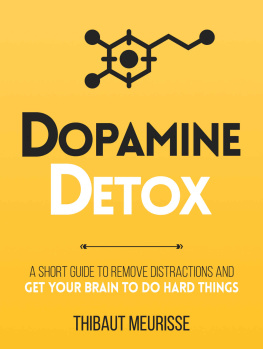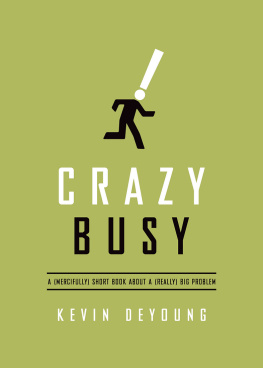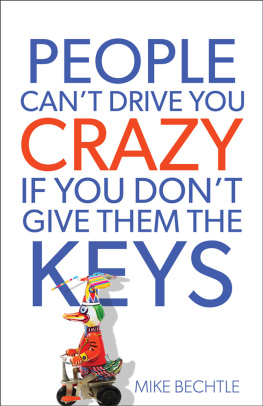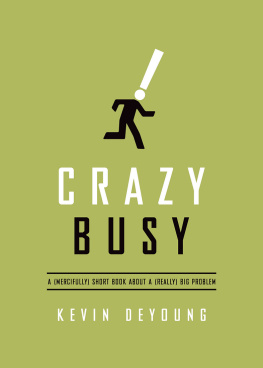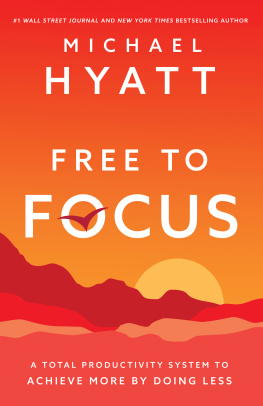Zena Everett - The Crazy Busy Cure: A Productivity Book for People Who Dont Have Time to Read Productivity Books
Here you can read online Zena Everett - The Crazy Busy Cure: A Productivity Book for People Who Dont Have Time to Read Productivity Books full text of the book (entire story) in english for free. Download pdf and epub, get meaning, cover and reviews about this ebook. year: 2021, publisher: Quercus, genre: Business. Description of the work, (preface) as well as reviews are available. Best literature library LitArk.com created for fans of good reading and offers a wide selection of genres:
Romance novel
Science fiction
Adventure
Detective
Science
History
Home and family
Prose
Art
Politics
Computer
Non-fiction
Religion
Business
Children
Humor
Choose a favorite category and find really read worthwhile books. Enjoy immersion in the world of imagination, feel the emotions of the characters or learn something new for yourself, make an fascinating discovery.
- Book:The Crazy Busy Cure: A Productivity Book for People Who Dont Have Time to Read Productivity Books
- Author:
- Publisher:Quercus
- Genre:
- Year:2021
- Rating:3 / 5
- Favourites:Add to favourites
- Your mark:
The Crazy Busy Cure: A Productivity Book for People Who Dont Have Time to Read Productivity Books: summary, description and annotation
We offer to read an annotation, description, summary or preface (depends on what the author of the book "The Crazy Busy Cure: A Productivity Book for People Who Dont Have Time to Read Productivity Books" wrote himself). If you haven't found the necessary information about the book — write in the comments, we will try to find it.
If we focus our time, energy and attention on the wrong things we will never achieve the success or happiness that we aspire to. The problem is that these wrong things, the low value, low impact tasks that distract us from our priorities, are hard to ignore. They scream out at us all day: digital distractions, other peoples urgent demand for five minutes thats never five minutes, the meetings that you shouldnt be in, the pointless email chains, the reports you write that dont get read.
We get a dopamine hit from ticking these tasks off a list. Its got us hooked on crazy busyness. But all we are doing is scratching off a layer of fake work on top of the real, valuable work.
The Crazy Busy Cure is full of intensely practical tips to save people from this addiction and instead become productive again. Jammed with practical productivity solutions to use immediately, the book introduces concepts such as being like lions and chasing antelopes not field mice; Lawn Mower Managers who clear the path not clog it; the PIMP process for prioritisation and the Head Space model for understanding where your time goes.
In this lively read, executive coach and organisational psychologist Zena Everett draws from her many thousands of hours and coaching and speaking to people and organisations about productivity blockers and how to shift them. She advises how to manage other peoples work as well as your own and explains how these practices apply to virtual working, including chapters on staying energised and productive when working remotely and influencing on Zoom.
The chapter on neurodiversity also offers productivity hacks for people with learning and thinking differences like dyspraxia and attention deficit disorder.
Read this book and regain your productivity.
Zena Everett: author's other books
Who wrote The Crazy Busy Cure: A Productivity Book for People Who Dont Have Time to Read Productivity Books? Find out the surname, the name of the author of the book and a list of all author's works by series.

